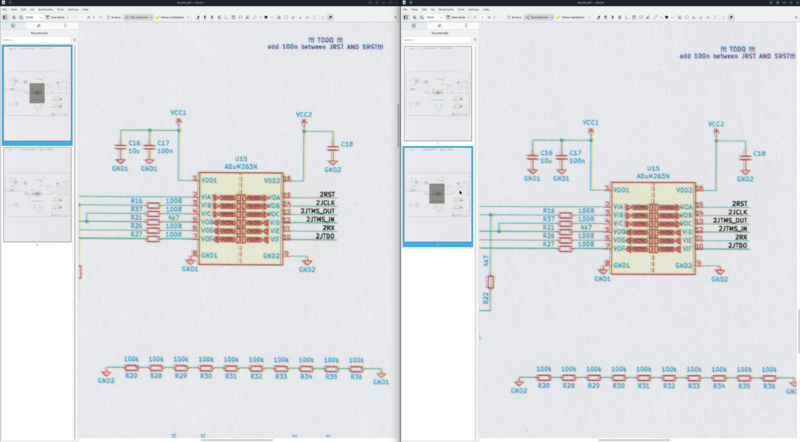Brother printers causing issues with third party inks
Brother is a printer company that has allowed the use of third-party toner cartridges with their printer devices. Recent firmware updates have changed this practice by displaying an error message when consumers attempt to install their third-party toner that was previously allowed. When using the Brother printer with the toner of their choice, some users report a significant decrease in print quality, functionally disabling the printer unless OEM toner is installed.[1]
Relevant practices
- Post-Sale Function Removal – Firmware updates retroactively remove previously available features, such as automatic color registration, for users using non-OEM toner.[1][2]
- Vendor lock-in via DRM – Printers continue to function with third-party toner but print at lower quality unless OEM toner is installed.
- Anti-consumer software practices – Firmware updates cannot be easily rolled back, preventing consumers from restoring lost functionality.[3]
- Deceptive practices – Printers do not reject third-party toner but intentionally cause a toner failure, which discourages use of third party toners.[4][2]
How it works
1. Consumers purchase a Brother laser printer that previously accepted third-party toner.
2. A firmware update (e.g., W1.56) is pushed and does not notify users of any major changes in core functionality.
3. After updating, users report:
- Color registration fails by default, causing misaligned prints.[5]
4. Brother support acknowledges that installing OEM toner will immediately resolve the issue.[4]
- Older firmware versions are removed from Brother’s servers, preventing firmware downgrades that would fix the issue while also allowing consumers to use their preferred toner.[6]
Impact on consumer protection
- Consumers may no longer use the ink provider of their choice without compromising the functionality of their printer.
- Consumers previously able to save money by purchasing third-party toner are now required to purchase OEM toner at a higher cost to maintain printer functionality.
- No prior warning of change in the printer's core functionality had been given before these firmware updates were installed.
- Workarounds tend to involve blocking the firmware updates or attempting downgrading the firmware, both of which Brother actively discourages.
Brother's response
On March 5th 2025, following the publication of a video on the Louis Rossmann YouTube channel, Brother addressed the issue in a response given to Ars Technica and stated the following: [7]
"We are aware of the recent false claims suggesting that a Brother firmware update may have restricted the use of third-party ink cartridges. Please be assured that Brother firmware updates do not block the use of third-party ink in our machines."
They also detailed that:
"Brother printers do not intentionally degrade print quality based on whether a Brother Genuine or non-genuine ink/ toner cartridge is used. Brother cannot verify the quality of printing that will result when using a third-party compatible with a Brother printer."
In their conclusion, they've attributed consumers' confusion and frustration to the following:
"Brother encourages the use of Brother Genuine ink and toner for optimal performance and reliability, and it is standard practice that we perform a Brother Genuine check when troubleshooting a Brother printer. Compatible supplies may range in quality, and in order to verify that a printer is working properly, we like to troubleshoot with Brother Genuine supplies. We believe this check in the process may have led to a misunderstanding[,] but as we confirmed, the firmware update would not be responsible for the degradation of quality or removal of printer features."
User evidence & reports
Hacker News Discussion (2022)
- Users have noticed that Brother's printers do accept third-party toner instead of outright rejection. This leads some to suspect the consequential loss of print quality may be a deliberate act. One user stated:
Brother seems to be apparently accepting the ink, but then purposefully making the print quality poorer.[4]
Reddit reports (r/printers)
- A firmware update on the Brother MFC-3750 disabled automatic color registration when third-party toner was detected.[1]
- A Brother support agent confirmed that installing OEM toner would "fix" the issue instantly, supporting user claims that the printer was being artificially restricted.
GitHub developer investigation
- A project analyzing Brother firmware updates discovered that older firmware versions were removed from Brother’s servers, making it impossible for users to roll back to a working version.[3]
- Another GitHub discussion showed that Brother firmware updates continue to lock out more non-Brother toner cartridges with each update.[6]
- This is similar to HP Dynamic Security, which blocks non-OEM cartridges.
Quality example

Comparison to other industry decisions
| Company | Tactic Used |
|---|---|
| HP | "Dynamic Security" firmware updates blocking non-OEM ink |
| Epson | Ink expiration DRM, even when cartridges are full |
| Canon | Firmware updates that disable scanning when ink is low |
| Brother | Print degradation for non-OEM toner users |
Mitigations available to users
- Avoid Firmware Updates – Disable auto-updates to prevent forced function removal. This may, however, lead to security risks.
- Attempt to downgrade – Some users have managed to roll back firmware, though this is becoming increasingly difficult.[6]
- HL-L9310CDW (with firmware main 1.69, sub 1.31): On the menu of the printer, delete the color registration to improve quality by reducing the misalignment of the individual colors. However, the best solution is to have a configuration option to set the offset individual (X, Y) for each color with the smallest possible increment, perhaps through an external (CUPS) printer driver.
See also
References
- ↑ 1.0 1.1 1.2 Brother MFC firmware update - non-genuine toner now disables critical features.
- ↑ 2.0 2.1 Brother MFC-L3370CDW Firmware Downgrade needed
- ↑ 3.0 3.1 Brother printer firmware downgrade discussion.
- ↑ 4.0 4.1 4.2 Tell HN: Brother printers now locking out non-OEM paraphernalia.
- ↑ ArchWiki - Printer-specific problems with Brother.
- ↑ 6.0 6.1 6.2 Discussion on firmware rollback for Brother printers.
- ↑ Brother denies using firmware updates to brick printers with third-party ink
